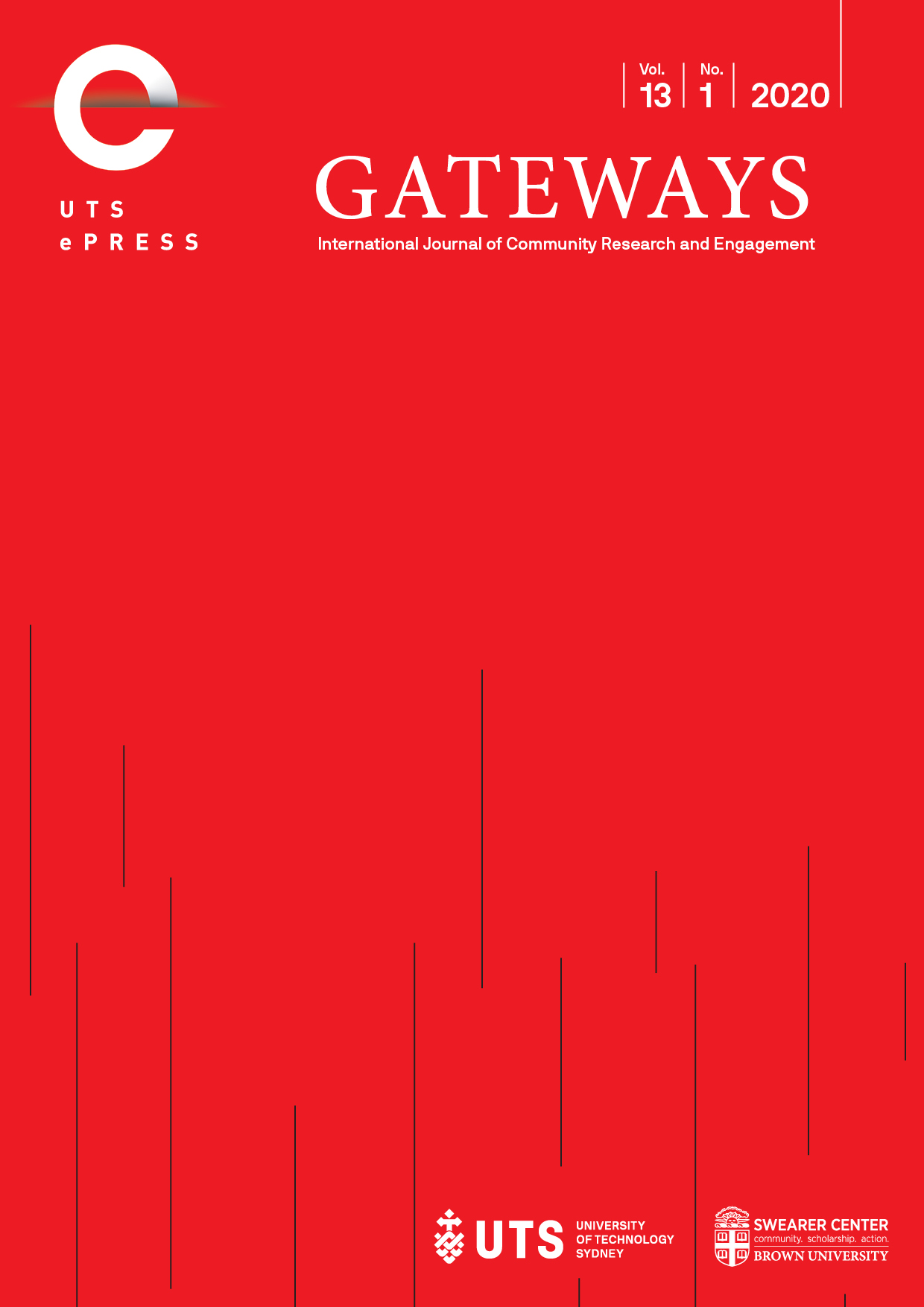Epistemic injustices and participatory research: A research agenda at the crossroads of university and community
Main Article Content
Abstract
This article presents an innovative framework to evaluate participatory research. The framework, comprising both a methodology and a self-assessment tool, was developed through a participatory approach to knowledge production and mobilisation. This process took place over the last two years as we, a multidisciplinary team made up of researchers and community-based organisation members from the Groupe de recherche et de formation sur la pauvreté au Québec, were building a scientific program on social injustices and participatory research.
We argue that participatory research can help provide a university-community co-constructed response to epistemic injustices embedded within the processes of knowledge production. From our perspective, the mobilisation of knowledge from the university and the community, initiated at the earliest stages of the creation of a research team, is part of a critical approach to the academic production of knowledge. It also constitutes a laboratory for observing, understanding and attempting to reduce epistemic injustices through building bridges between team members.
The article focuses on two dimensions of the framework mentioned above: (1) The methodology we established to build co-learning spaces at the crossroads of university and community-based organisations (recruitment of a coordinator to organise and facilitate the workshops, informal and friendly meetings, regular clarification of the process and rules of operation, time for everyone to express themselves, informal preparatory meetings for those who wanted them, financial compensation where required, etc.); and (2) A self-assessment tool available in open access that we built during the process to help academics and their partners engage in a reflexive evaluation of participatory research processes from the point of view of epistemic injustices. Throughout we pay particular attention to challenges inherent in our research program and our responses, and finish with some concluding thoughts on key issues that emerged over the course of two years’ research.
Article Details
Issue
Section
Authors who submit articles to this journal from 31st March 2014 for publication, agree to the following terms:
a) Authors retain copyright and grant the journal right of first publication with the work simultaneously licensed under a Creative Commons Attribution License that allows others to share and adapt the work with an acknowledgement of the work's authorship and initial publication in this journal.
b) Authors are able to enter into separate, additional contractual arrangements for the non-exclusive distribution of the journal's published version of the work (e.g., post it to an institutional repository or publish it in a book), with an acknowledgement of its initial publication in this journal.
c) Authors are permitted and encouraged to post their work online (e.g., in institutional repositories or on their website) prior to and during the submission process, as it can lead to productive exchanges, as well as earlier and greater citation of published work (See The Open Access Citation Advantage Service). Where authors include such a work in an institutional repository or on their website (ie. a copy of a work which has been published in a UTS ePRESS journal, or a pre-print or post-print version of that work), we request that they include a statement that acknowledges the UTS ePRESS publication including the name of the journal, the volume number and a web-link to the journal item.
d) Authors should be aware that the Creative Commons Attribution (CC-BY) License permits readers to share (copy and redistribute the work in any medium or format) and adapt (remix, transform, and build upon the work) for any purpose, even commercially, provided they also give appropriate credit to the work, provide a link to the license, and indicate if changes were made. They may do these things in any reasonable manner, but not in any way that suggests you or your publisher endorses their use.
For Volume 6 (2013) and before, the following copyright applied:
Articles published by UTSePress are protected by copyright which is retained by the authors who assert their moral rights. Authors control translation and reproduction rights to their works published by UTSePress. UTSePress publications are copyright and all rights are reserved worldwide. Downloads of specific portions of them are permitted for personal use only, not for commercial use or resale. Permissions to reprint or use any materials should be directed to UTSePress.
